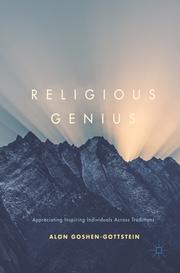
Being an academic project it’s interested in definitions and categories. It recognises the importance of saints within religious traditions but hopes to extend an appreciation of religious figures beyond their own tradition and perhaps even beyond the confines of religion at all. This is not something new to those of us involved in interfaith relations of course. The journey into the faith of others opens us to the wisdom, strength and courage found in the stories of significant figures in other faiths, though not all of them would be categorised as geniuses. For me an element of genius would have to be a new insight into reality or religion, the impact of the message and the lasting effect of its inspiration. The founders of many of the world religions could fall into this category.
This month Baha’is the world over are celebrating the bicentenary of the birth of their founder Baha’u’llah. The Baha’i religion is a young faith, seen as heretical by Shia Muslims in Iran, sometimes categorised as a new religious movement rather than a world faith by others such as the Vatican for within the history of religion two hundred years is a short time. It’s only recently that the Vatican has entered into a formal dialogue with Sikhism which was founded in the sixteenth century. It’s interesting though to see a religion in its early days when institutionalisation doesn’t seem to have taken over or debates about the truth of its teaching divided its followers. There’s a freshness in its approach and a beauty in its prayers. An advantage it has over most other religions is that Baha’u’llah was prolific in his writings and Baha’is have a record of what he said. These have been collected into over a hundred volumes which makes studying the Baha’i scriptures a bit difficult. It’s good to have the exact words of the founder but no doubt there will come a time, and perhaps it has already come, that some of these writings will need to be interpreted for another age for insightful and beautiful as they are, they are conditioned by the context in which they were written. A Baha’i friend of mine was quite surprised when she learned that Christians don’t have verbatim reports of the words of Jesus.
The story of Baha’u’llah’s life follows a pattern that is common in the founders of other faiths. His message was foretold and prepared for by a herald, known as the Bab, which means gate in Arabic, a bit like John the Baptist preparing the way for Jesus or the hanifs preparing the way for Mohammed’s message. The Bab, however, is regarded as more than just a messenger, being recognised as a manifestation of God and as such is a co-founder of the Bahai faith. Baha’u’llah, like the Buddha, Jesus, Mohammed, Guru Nanak spent some time in the wilderness, alone in meditation after which he announced his message for the world. Like other founders his message was a challenge to the prevailing culture in which he lived and he proved his fidelity to God’s call by his willingness to suffer for what he preached.
The similarities in the lives of religious founders in no way invalidates their stories but shows, perhaps, that religious geniuses, if indeed they were that, will be a challenge to the culture and religion in which they live, will have to suffer for what they believe, will inspire others to continue their teaching and keep their memory alive. It’s possible to respect and admire the centrality of their teaching, accepting their goodness and significance without believing in their claims of uniqueness. So many people can and do admire Jesus and his teaching without believing that he is the unique Son of God, many people can and do admire Mohammed without believing that he is the last and final prophet and many people can and do admire Baha’u’llah and not accept that he is a unique manifestation of God.
The idea and contribution of the idea of religious genius might be that it is a category that allows us to accept and admire the force of a person’s life, the importance of his or her teaching, the impact of their message on the life of their followers and yet bring with it a sense of detachment which does not require commitment or conversion. It allows us to see humanity at its best and do what Pope Francis encouraged us to do at a recent gathering for peace in Al- Azar University, that is welcome one another as fellow-travellers “in the genuine conviction that the good of each resides in the good of all”



 RSS Feed
RSS Feed
